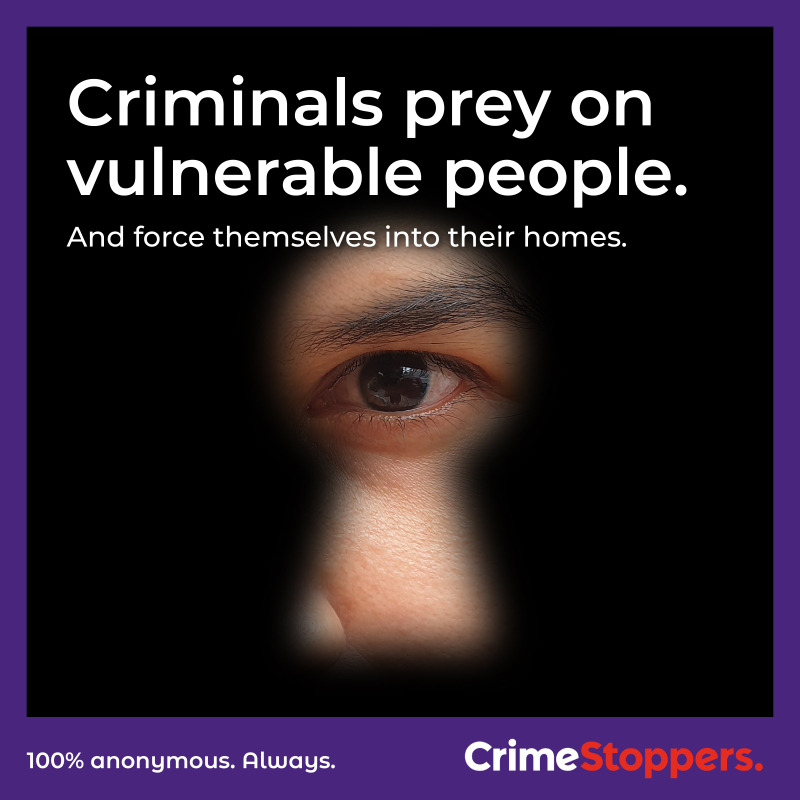Hertfordshire: A focus on keeping communities safe from cuckooing
This campaign, being run in collaboration with Hertfordshire Constabulary, Hertfordshire Safeguarding Adults Board & the district councils, encourages anyone with concerns that someone has had their house cuckooed to contact our charity 100% anonymously.
Cuckooing victims are typically vulnerable people who have drug, alcohol, physical and mental health problems. They may also have learning difficulties or other disabilities, making them ‘easy targets’. It is difficult for them to realise what is happening to them, due to a lack of understanding or them being ‘conditioned’ by their exploiter.
The most common form of cuckooing is where drug dealers or gang members take over a person’s home and use it to store and/or distribute drugs.
But there are many other criminal activities which could mean victims can find themselves powerless and frightened within their own home.
- The perpetrator/s themselves may sexually abuse the victim
- A change in demeanour or attitude towards engaging with neighbours
- The house may be used as a brothel
- Multiple women staying at one property
- Large number of women regularly being brought to and taken from the property
- Lots of males might start visiting the property for short periods of time
- Women always escorted when outside the property
- Pay cheques, benefits or savings stolen
- Change in living conditions - lack of heating, clothing or food
- Inability to pay bills/unpaid bills
- Unexplained withdrawals from an account or sudden changes in bank accounts
- Signatures that do not resemble the person’s normal handwriting
- Isolation of a person from friends and family
- Someone starting to engage in criminal behaviour, such as shop lifting, selling and/or using drugs
- A person being accompanied to the bank/Post Office/credit union when benefits are being collected or money withdrawn
- The purchase of items that the person does not require
- Victims may be forced or deceived into providing a service or a benefit
- Working excessively long hours day in day out
- Someone may start to engage in criminal behaviour
- Inability to communicate freely with others
- A belief they ‘owe’ the criminals and must work off their ‘debt’. This is known as ‘debt bondage’
- Victims can be forced to live in small rooms/areas of their own house unable to meet their own health and hygiene needs
Please note: With Crimestoppers and Fearless for young people, computer IP addresses are never traced and no-one will ever know you contacted us. For telephone calls via 0800 555 111, there is no caller line display, no 1471 facility and calls have never been traced.
“The experience of being ‘cuckooed’ has a hugely negative impact on victims. People who have their home taken over by these criminal gangs experience high levels of physical violence, psychological abuse and exploitation. Female victims have been known to disproportionately experience the additional torment of sexual coercion and assault.
“Those with a disability, poor mental health, substance addiction or elderly and lonely are at greater risk of being faced with violence and intimidation. They would rely on their friends and neighbours to raise the alarm with concerns.
“Exploitation and cuckooing ruins lives and nobody should have to live in fear in their own home. We are asking people to remain vigilant to the signs of a property being cuckooed and we are appealing to everyone to help protect vulnerable people in our community by telling Crimestoppers and Fearless for young people anonymously what you know about criminal activity.”
Annabelle Goodenough, Crimestoppers South East Regional Manager
25 November 2024
